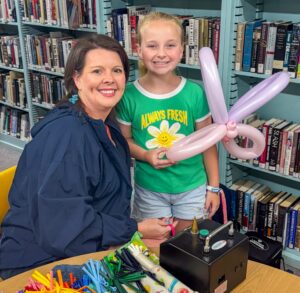Hands on horticulture: Extension agent helps commercial producers
Boxwood blight is a fungal disease that has made its way into Alabama, and it is one problem Chapman addresses in his educational efforts.
Lloyd Chapman
Chapman helps people with their high value crops, like apples, and landscape plants, like the sourwood, a native tree that is an important source of nectar for honeybees.
Chapman is a regional Extension agent who serves Franklin County in the department of commercial horticulture. He explained that commercial producers are those who make a living or make money from what he calls high value crops, like fruits, vegetables and ornamental plants.
“I work with commercial producers and homeowners, helping them make as few mistakes as possible,” Chapman said.
He makes individual visits to people who call requesting his help, but he also hosts meetings on various topics to help educate people. In the near future he will offer tree fruit, strawberry and vegetable meetings. The topics are selected based on growers’ needs.
“The best ones lately have been where we all just talk to and learn from each other,” he said.
Sometimes his meetings will include presentations by in-state or out-of-state specialists. Recently, for example, the Extension hosted a pathologist speaking on the increasingly important issue of boxwood blight. Chapman said that it started around three years ago in North Alabama but came over to the states from England many years ago.
Boxwood blight is a fungal disease that defoliates the plants, and there is no cure for it. Chapman said management is the key in fighting this disease, either through methods like fungicide spray or sometimes even just avoiding planting boxwoods at all.
“I enjoy helping others solve problems and figuring problems out. It’s rewarding,” he said.
His love for horticulture runs through his blood. Chapman said his grandmother always had a garden, so he grew up in that environment.
“Any sort of green thumb I have, I guess I get from her,” he said.
One of his first personal experiences in horticulture was with his grandfather, who Chapman said had planted pecan nuts and then was trying to figure out how to get the trees to bear nuts every year. Chapman began grafting and budding his own pecan trees and realized he enjoyed horticulture.
“It’s interesting watching plants grow and helping the process and helping others with it,” he said.
After Chapman graduated high school, he originally thought that he wanted to study forestry and wildlife at the University of Alabama, but after two years he learned that wasn’t the path for him.
He took a ten-year break before resuming his studies and attended Auburn University, where he earned a Bachelor of Science degree in horticulture in 1989. In 1992 he earned his master’s degree in horticulture, with his thesis on the bloom delay of peaches. Through his thesis he managed to delay the bloom time of peach plants by one to two weeks, which he said saves them from the danger of being damaged by winter weather.
Chapman started working as an Extension agent in 1992.








